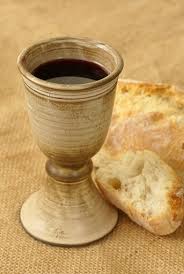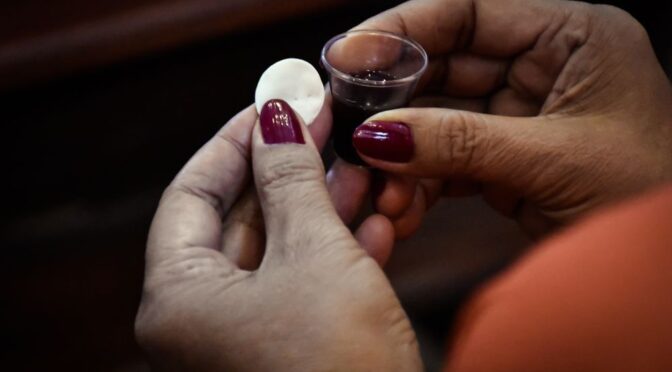“And when He had given thanks, He broke it and said, ‘This is My body, which is for you; do this in remembrance of Me.’ In the same way, He took the cup also after supper, saying, ‘This cup is the new covenant in My blood; do this, as often as you drink it, in remembrance of Me.’” – 1 Corinthians 11:24-25 (NASB)
Communion also called the Lord’s Table, is a sacred ordinance instituted by Jesus during His final Passover meal with the disciples. Through the symbols of bread and wine (or juice), we are reminded of His sacrificial death, His body broken for us, and His blood shed for the forgiveness of our sins. It is a time of remembrance, gratitude, and worship.
The Significance of Communion
Communion draws from the rich history of the Passover, a celebration established in the Old Testament. During Passover, the Israelites sacrificed a spotless lamb, applying its blood to the doorposts of their homes as a sign of protection and atonement for sin. (Exodus 12)
In the New Testament, Jesus is revealed as the ultimate Passover Lamb:
“Behold, the Lamb of God who takes away the sin of the world!” – John 1:29
Jesus’ sinless life and sacrificial death fulfilled the Old Testament requirement of a perfect lamb. His blood cleanses us from sin, provides forgiveness, and brings healing to our bodies and spirits.
“For Christ also died for sins once for all, the just for the unjust, so that He might bring us to God, having been put to death in the flesh, but made alive in the spirit.” – 1 Peter 3:18
Isaiah prophesied this sacrificial act centuries before Jesus:
“But He was wounded for our transgressions, He was bruised for our iniquities; the chastisement for our peace was upon Him, and by His stripes, we are healed.” – Isaiah 53:5
A Holy Union
Communion is a spiritual “union” with Jesus, where believers reflect on His sacrifice and rededicate their lives to Him. It is a holy act, not to be taken lightly or in an unworthy manner. The apostle Paul warned:
“Therefore whoever eats this bread or drinks this cup of the Lord in an unworthy manner will be guilty of the body and blood of the Lord.” – 1 Corinthians 11:27
Before taking communion, believers are encouraged to examine their hearts, seek forgiveness, and restore broken relationships. This time of reflection ensures that our hearts are aligned with God and that we partake with reverence and gratitude.
Communion at Freedom Worship Center

At FWC, Communion is one of two Scriptural ordinances we observe, the other being Water Baptism. Communion is open to all who have confessed Jesus Christ as their personal Savior. It serves as both a remembrance of His sacrifice and a celebration of the new covenant in His blood.
How We Celebrate Communion
- The Bread: Symbolizes the body of Christ, broken for us.
- The Cup: Represents the blood of Christ, shed for the forgiveness of sins and the establishment of the new covenant.
By partaking in communion, we publicly acknowledge the life, death, and resurrection of Jesus, uniting as believers in remembrance of His ultimate sacrifice and declaring His promise to return.
“For as often as you eat this bread and drink this cup, you proclaim the Lord’s death until He comes.” – 1 Corinthians 11:26
A Call to Reflection
Communion is a time to:
- Remember Christ’s sacrifice.
- Reflect on our relationship with God and others.
- Repent of any sin and restore unity in the body of Christ.
- Rejoice in the victory and hope we have in Him.
At Freedom Worship Center, Communion is a cornerstone of our worship, drawing us closer to Christ and one another in faith, gratitude, and love. Come to the table with reverence and joy, knowing the depth of His love and the power of His sacrifice.

